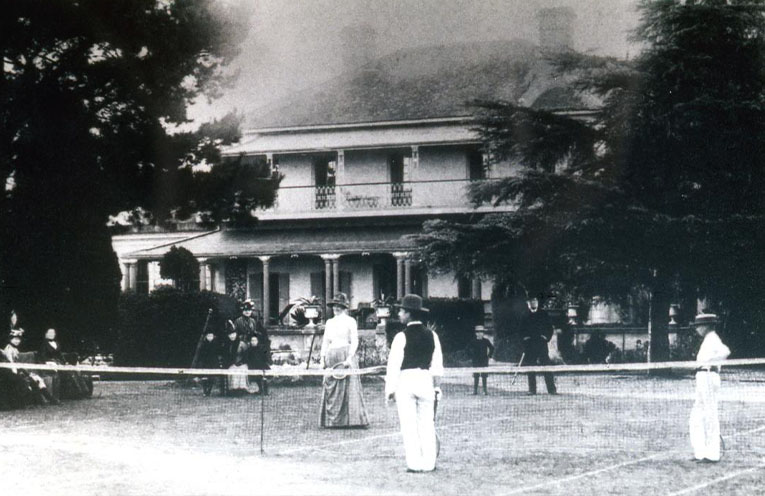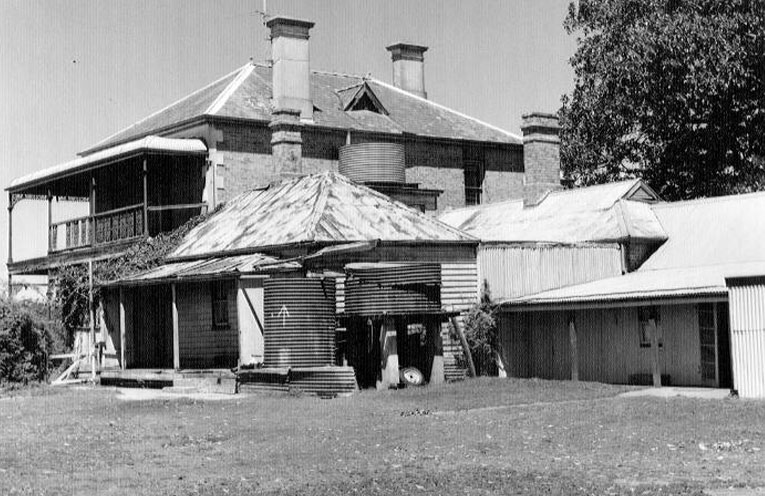Share via:
WHILE researching my latest book “Marsh Road” I came across the name “Gentleman Smith”.
It was he whose cattle were tended in the Fullerton Cove and Anna Bay area by a convict assigned to him who was simply referred to as Bob.
Bob had made it known, that once emancipated, he would dearly love to settle on the land along the Tilligerry Creek.
This unfortunately did not eventuate.
It so happened that it was Magnus Cromarty, son of Captain William Cromarty, who purchased Gentleman Smith’s herd of cattle and land adjacent to the creek which he referred to as Bobs Farm.
The more I read about Gentleman Smith the more interested I became in this fascinating character.
John Smith was born in Manchester England in 1787.
At 20 years of age he was arrested for stealing stockings and sentenced to seven years transportation.
He considered himself fortunate as the alternative was to fight against Napoleon’s forces.
He was sent to a prison hulk in Portsmouth in 1809.
From Portsmouth he travelled on the ship Indian, under the name of John Sidebottom, which arrived in Port Jackson in 1810.
In 1811 he was reported as absconding from the Georges River.
He stole, then sold, tobacco from a warehouse but was found not guilty on the lesser charge of “stealing from a warehouse”.
This is where the story becomes very interesting and somewhat confusing.
It appears that John Smith, who had earlier changed his surname to Sidebottom, was already in Australia when, in 1813, all was in readiness for the ship General Hewett to take on her 300 male convict passengers and begin her voyage to Sydney town.
Among her passengers were three John Smiths, including Francis Greenway, an architect sentenced for forgery, and painter Joseph Lycett, who was also sentenced for forgery.
The ship arrived in Sydney in 1814 – Gentleman John Smith was not on board!
Regardless of when Gentleman Smith arrived in Australia, records show that in 1814 Rev Samuel Marsden married John Smith and Mary Furber.
Their first child was born in 1815.
Before their second child was born John found himself before the Magistrate again, accused of robbing a settler neighbour. He was found guilty and sentenced to serve out the remainder of his term at the Coal River settlement – Newcastle.
He sailed to Newcastle for penal settlement on board the Lady Nelson from Parramatta in 1815
Rather than this being a punishment, John fared well.
Gaining favour with Commandant Wallis in Newcastle, he was quickly appointed to the role in 1817 of Chief Constable of Newcastle.
In this role he was in charge of 17 other constables and personally supervised the lockup of the gaol each evening.
He held this role for close to six years, resigning from the role when it was “materially interfering with his domestic duties”.
During 1818 John was one of the first convicts permitted to occupy a farm at Willis Plains near East Maitland where he was assigned convicts and employed an overseer.
John owned various properties in the Maitland district including the steam driven flour mill and the Black Horse Inn.
He was far too busy with his Chief Constable rolls to be able to work on the farm himself.
Shortly after the arrival of James Morrisett to replace Commandant Wallis in 1819, John’s name appears in the Colonial Secretaries paper for the first time.
Questions are asked about his original sentence and the ship he arrived on.
It appears that John, or someone else, told Morrissett that he had been sentenced and transported on a ship before the General Hewett.
No action is taken against Constable Smith following his admission.
In fact he received a conditional pardon from the Governor that same year.
One thing is certain, John Smith had visions and big plans.
His entrepreneurial nature was evident in many of his actions after receiving his pardon.
By August 1823 John had established the Newcastle Hotel, the first licensed premises at that time.
Liquor was prohibited in the town of Newcastle.
John continued to accumulate land in the region including lucrative farmland adjacent to the Hunter River.
In 1838 he purchased 28 acres of land in the Fullerton Cove, called Stanley Park, to fulfil a contract for the military to supply beef which he transported to the township of Newcastle by barge.
With his variety of business interests John had many convicts assigned to him.
He brought badly behaved convicts before the Magistrate to receive their punishment for misdeeds such as absconding and neglect of duty.
Quite ironic, considering his personal experiences.
In 1861, as an elderly 74-year-old, he was again before the Courts.
This time accused of feloniously, unlawfully and maliciously setting fire to a building with intent to defraud the Liverpool and London Fire and Life Insurance Company.
He was found not guilty and the charge was dismissed.
By the time of his passing in November 1870 he had an extensive collection of property as evidenced by his 19 page will. His final resting place was the family vault in the heights of the Christchurch burial ground in Newcastle.
Sadly, as is the case with many colonial burial grounds, all physical evidence of his resting place was destroyed during the beautification of the site in the 1960s.
His vault now lies between the asphalt road surrounding Christchurch Cathedral.
Many records exist which gives us an insight into the character of “Gentleman Smith”.
Whether by luck or more likely by good planning and management, John took the opportunities available to an emancipated man willing to work hard and use the colonial system to his advantage.
Without his knowledge, he played a major role in the naming of the community of Bobs Farm.
Remarkably there is more to the story in that the Fullerton Cove property was sold to Gentleman Smith in 1838 who, at the time, was described as a wealthy landowner with business interests in Maitland and Newcastle.
In 1897 Stanley Smith, Gentleman Smith’s grandson, built a two-storey homestead, estimated to cost £1800.
This majestic building stands today in Fullerton Cove.
By John ‘Stinker’ CLARKE
You can help your local paper.
Make a small once-off, or (if you can) a regular donation.
We are an independent family owned business and our newspapers are free to collect and our news stories are free online.
Help support us into the future.
Share via:




